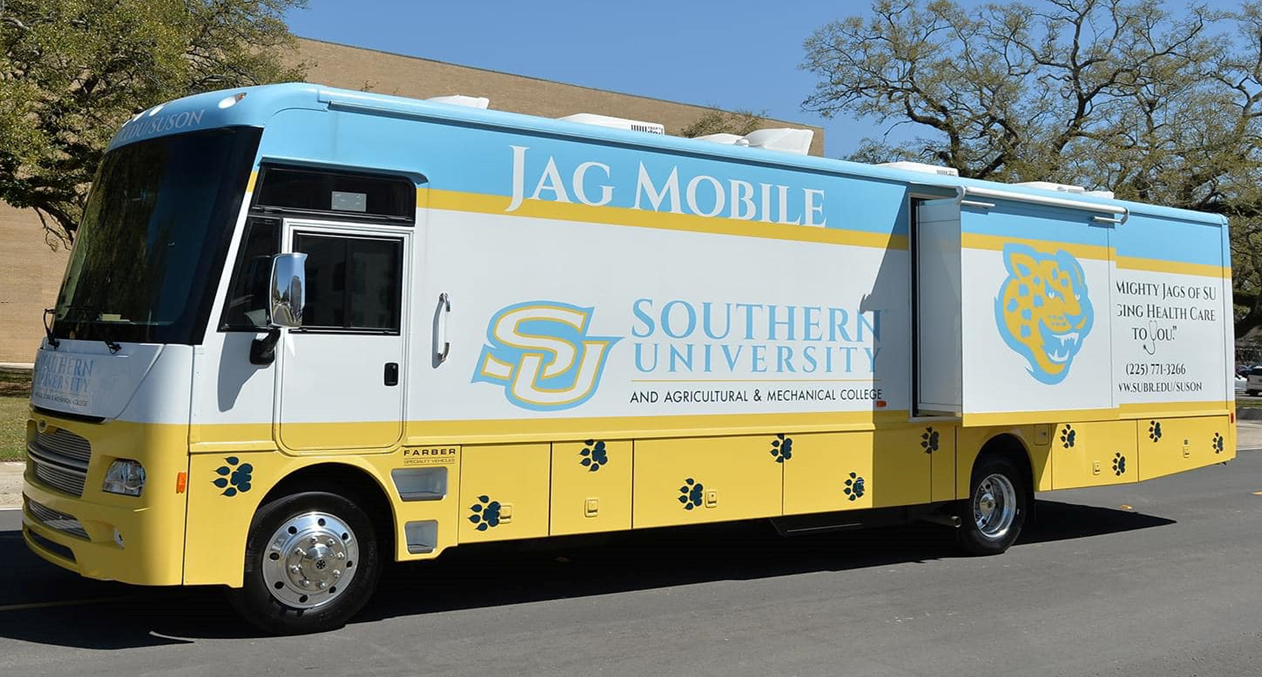- Message from the Dean
- SUSON Mission Statement
- Bachelor of Science in Nursing
- Master of Science in Nursing
- Doctor of Philosophy in Nursing
- Doctor of Nursing Practice
- Accreditation
- Faculty & Staff
- Scholarships
- Jag Mobile
- I-STAR-LC
- SUSON Alumni Association
- News & Events
- College of Nursing and Allied Health
Jag Mobile
Spring 2026 Jag Mobile Calendar
*** "Jag Mobile" Mobile Health Unit Request ***
Spring 2026 (February) through Fall 2026 (December)
The “Jag Mobile” (named after the Southern University mascot, the jaguar), is a 38ft, 11-inch, “clinic on wheels.” This innovative “clinic on wheels” approach is designed to provide health outreach services to medically underserved, disadvantaged, hard to reach populations located in inner-city and rural communities within a 50-mile radius of the School of Nursing. The wheelchair accessible mobile health clinic is fully equipped with two examination rooms designed to accommodate children, women and adult populations. As an additional feature, each examination room is outfitted with state-of-the-art equipment to allow for telehealth visits. The Jag Mobile also houses a centralized patient intake area, sinks with eye wash features, cabinets to store equipment and medical supplies, lab-draw station, two refrigerators, and a lavatory. Safety features include a back-up camera and a security system.As a clinical facility site for nursing students, both undergraduate and graduate nursing students utilize the mobile clinic to meet clinical learning objectives in conjunction with the School of Nursing’s curriculum.In partnership with Ochsner Health System, the overarching objectives for the Jag Mobile are as follows:
- To provide access to culturally sensitive health promotion and disease prevention services to vulnerable, medically underserved populations,
- To establish collaborative, interdisciplinary partnerships within the College of Nursing and Allied Health to address the identified health promotion and disease prevention needs of the populations served,
- To provide health teaching and screening for early detection of underlying medical conditions such as hypertension and diabetes that increase the risk for serious illness from COVID-19 in vulnerable, medically underserved populations residing in inner-city and rural communities, and,
- To increase the number of health care providers who possess the necessary skills to effectively meet the diverse health care needs of vulnerable populations.

